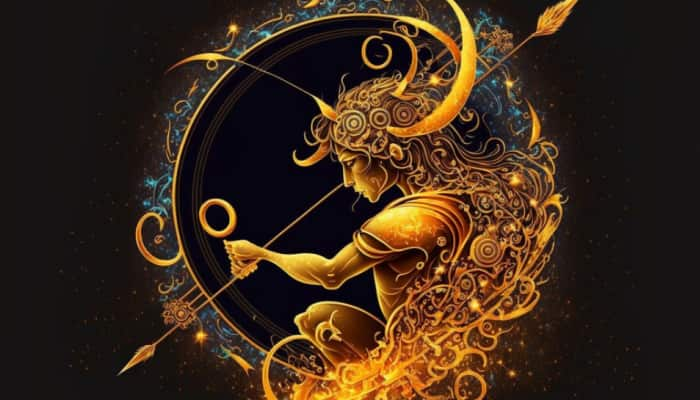Pravasi Bharatiya Divas: Rooting for roots
The history of human civilisation has witnessed Indians migrating and venturing out to different lands in search of new prospects. Indian Diaspora is the broad term used to describe this wide population of migrants and their descendants.
Trending Photos
To celebrate the achievements and acknowledge the contributions of overseas Indian community and to promote understanding and relations of the Indian Diaspora with India, an international event is held every year in the first week of January. A high level committee (HLC) on the Indian Diaspora, set up by the Government of India, under the chairmanship of Dr. L.M. Singhvi, MP, recommended celebration of Pravasi Bharatiya Divas on 9th January every year. On 8th January, 2002 the then Prime Minister Atal Bihari Vajpayee accepted the recommendation put forward by the HLC in a public function at Vigyan Bhavan, New Delhi. He announced that Pravasi Bharatiya Divas (PBD) will be celebrated in India and abroad on the ninth day of January every year. The choice of the date is significant as it was on this date that Mahatma Gandhi finally returned to India in 1915 to lead India’s freedom struggle after two decades in South Africa as a Pravasi Bharatiya.
This annual affair which is known as Pravasi Bharatiya Divas acts as a platform for discussing issues, problems and difficulties, hopes and aspirations of overseas Indian community. It also aims at bringing the expertise and knowledge of the overseas Indian community to India and integrating it into India’s development process. The celebration of Pravasi Bharatiya Divas is also marked by special programs to recognise the contributions of NRI/PIO individuals of exceptional merit by giving them Pravasi Bharatiya Samman. To facilitate Overseas Indians further, the PIO university announced by the PM in 2007 is in the final stages, while the Overseas Indian Facilitation Centre has been set up in partnership with CII. An India Development Foundation will channelise PIO funds into human development in the coming months.
History
First Pravasi Bharatiya Divas (PBD) was celebrated in the year 2003 from January 9th to January 11th and was sponsored by the Ministry of Overseas Indian Affairs and FICCI. Creating `consciousness of Global Indian Family` was the main highlight and achievement of the first Pravasi Bharatiya Divas. The conference was attended by large number of foreign and domestic delegates.
During the first PBD, the Prime Minister of India also announced Dual Citizenship initiative for the people of Indian Origin. Subsequently, the draft bill was introduced in the Rajya Sabha on 9th May, 2003 for amending the Citizenship Act 1955, to give effect to this policy announcement. In Dec 2003, Parliament passed the Citizenship (Amendment) Bill 2003 to grant dual citizenship to the PIOs belonging to 16 countries.
The highlights and objectives of the second Pravasi Bharatiya Divas included the close interaction of the Indian Diaspora with the central and state governments to define new policy initiatives for the Diaspora and exploring business opportunities in India and within the Diaspora. Besides, preparing global network of the younger generation of the Indian Diaspora was another major objective of the second Pravasi Bharatiya Divas.
Held in Mumbai, the third Pravasi Bharatiya Divas was attended by large number of political and business leaders, professionals, scientists, and innovators from the Indian Diaspora. The third Pravasi Bharatiya Divas not only provided a unique networking opportunity but also strengthened India`s relation with its Diaspora. The fourth Pravasi Bharatiya Divas was held in Hyderabad in the year 2006 with the focus on Indian Diaspora knowledge network, opportunities in education, Indian Diaspora youth etc.
The fifth Pravasi Bharatiya Divas was organised on January 7, 2007 in partnership with the Confederation of Indian Industry (CII) in New Delhi. The conference focussed on networking opportunities and collaboration.
Pravasi Bharatiya Divas 2008
The ongoing sixth Pravasi Bharatiya Divas was organised in New Delhi from 7th - 9th January 2008. The aim of the Pravasi Bharatiya Divas 2008 was to amalgamate the experiences and expertise of the Indian Diaspora with the development of India resulting in mutual development. This event is built around the theme “Engaging the Diaspora: The Way Ahead”.
The topic of discussion for the plenary session of Pravasi Bharatiya Divas 2008 included key issues like challenges of development in the Indian context, leveraging technology for development, healthcare, youth, women’s empowerment, culture, and more. Business networking, trade and industrial exhibitions showcasing India’s economic capabilities are other major highlights of the event. Besides, the event would also include exhibitions of Indian art and cultural heritage, food fests, cultural shows.
On day one of the 6th PBD, the Prime Minister announced the setting up of a global advisory council of PIOs, a worker helpline and a nationwide skill upgradation programme.
The History of Pravasi Bharatiya Divas clearly shows that the objective of the event is to promote better relations between India and its Diaspora for mutual benefit. The event has also led to major achievements and contributions from both sides. For example-with aid pouring in from all directions, the Indian Diaspora and the Indian government could successfully raise over million dollars for Tsunami victims. PIO organisations have undertaken initiatives in education, health, and rural development. GOPIO (Global Organisation of People of Indian Origin) has adopted 50 villages in India and launched Gopio. American Association of Physicians of Indian Origin(AAPI) is commencing work for medical education and connectivity of physicians of Indian origin in America with villages in India. The Indian Business School has revealed the success of engagement of overseas Indians in educational and research ventures in India. There are an estimated four to five million overseas Indian workers all over the world. Every fifth member of the diaspora is thus a worker. They have contributed a great deal to the economic and social empowerment of their families back home, to the development of their communities and to the economic enrichment of the India. FAQs Who is an NRI?
An Indian Citizen who stays abroad for employment/carrying on business or vocation outside India or stays abroad under circumstances indicating an intention for an uncertain duration of stay abroad is a non-resident. (Persons Posted in U.N. organisations and official deputed abroad by Central/State Governments and Public Sector undertakings on temporary assignments are also treated as non-temporary assignments are also treated as non-residents). Non-resident foreign citizens of Indian Origin are treated on par with non- resident Indian citizen (NRIs).
Who is a person of Indian origin?
A foreign citizen (other than a citizen of Pakistan or Bangladesh) is deemed to be of Indian origin, if, he, at any time, held an Indian passport, or he or either of his parents or any of his grand parents was a citizen of India by virtue of the Constitution of India or Citizenship Act, 1955 (57 of 1955). What is an OCB?
Overseas Corporate Bodies (OCBs) are bodies predominantly owned by individuals of Indian nationality or origin resident outside India and include overseas companies, partnership firms, societies and other corporate bodies which are owned, directly or indirectly, to the extent of atleast 60% by individuals of Indian nationality or origin resident outside India as also overseas trusts in which atleast 60% of the beneficial interest is irrevocable held by such persons. Such ownership interest should be actually held by them and not in the capacity as nominees, The various facilities granted to NRIs are also available with certain exceptions to OCBs so long as the ownership/beneficial interest held in them by NRIs continues to be atleast 60%.
Are OCBs required to produce any certificate regarding ownership/beneficial interest in them by NRIs?
Yes. In order to establish that the ownership/beneficial interest in any OCB held by NRIs is not less than 60%, the concerned body/trust is required to furnish a certificate from an overseas auditor/chartered accountant/certified public accountant in form OAC where the ownership/beneficial interest is directly held by NRIs, and in form OAC 1 where it is held indirectly by NRIs and further that such ownership interest is actually held by them and not in the capacity as nominees.
What are the various facilities available to NRIs/OCBs?
NRIs/OCBs are granted the following facilities :
Maintenance of bank accounts in India. Investments in securities/shares of, and deposits with,Indian firms/companies. Investments in immovable properties in India.







)
)
)
)
)
)
)
)
)
)
